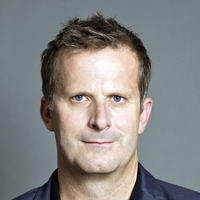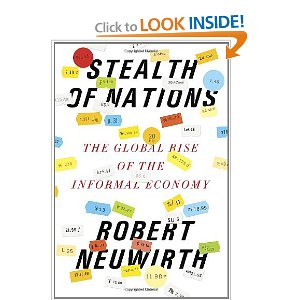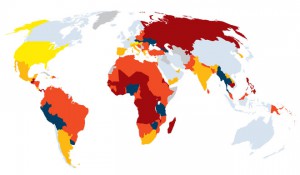
Why Black Market Entrepreneurs Matter to the World Economy
Robert Capps
WIRED, 16 December 2011
Not many people think of shantytowns, illegal street vendors, and unlicensed roadside hawkers as major economic players. But according to journalist Robert Neuwirth, that’s exactly what they’ve become. In his new book, Stealth of Nations: The Global Rise of the Informal Economy, Neuwirth points out that small, illegal, off-the-books businesses collectively account for trillions of dollars in commerce and employ fully half the world’s workers.

Further, he says, these enterprises are critical sources of entrepreneurialism, innovation, and self-reliance. And the globe’s gray and black markets have grown during the international recession, adding jobs, increasing sales, and improving the lives of hundreds of millions. It’s time, Neuwirth says, for the developed world to wake up to what those who are working in the shadows of globalization have to offer. We asked him how these tiny enterprises got to be such big business.
Wired: You refer to the untaxed, unlicensed, and unregulated economies of the world as System D. What does that mean?
Robert Neuwirth:There’s a French word for someone who’s self-reliant or ingenious: débrouillard. This got sort of mutated in the postcolonial areas of Africa and the Caribbean to refer to the street economy, which is called l’économie de la débrouillardise—the self-reliance economy, or the DIY economy, if you will. I decided to use this term myself—shortening it to System D—because it’s a less pejorative way of referring to what has traditionally been called the informal economy or black market or even underground economy. I’m basically using the term to refer to all the economic activity that flies under the radar of government. So, unregistered, unregulated, untaxed, but not outright criminal—I don’t include gun-running, drugs, human trafficking, or things like that.

Wired: Certainly the people who make their living from illegal street stalls don’t see themselves as criminals.
Neuwirth: Not at all. They see themselves as supporting their family, hiring people, and putting their relatives through school—all without any help from the government or aid networks.
Wired: The sheer scale of System D is mind-blowing.
Neuwirth: Yeah. If you think of System D as having a collective GDP, it would be on the order of $10 trillion a year. That’s a very rough calculation, which is almost certainly on the low side. If System D were a country, it would have the second-largest economy on earth, after the United States.
Tip of the Hat to Berto Jongman.
Phi Beta Iota: System D is completely separate from straight forward black crime (organized crime) or white crime (Goldman Sachs et al). What this really means is that governments have lost all legitimacy and two thirds of the global economy now considers governments to be at best a meddling (and costly) nuisance and at worst the enemy to be defeated by any means necessary. Governments brought this on themselves.
See Also:
Critical Choices. The United Nations, Networks, and the Future of Global Governance
Global Public Policy: Governing Without Government?
High Noon: 20 Global Problems, 20 Years to Solve Them
Illicit: How Smugglers, Traffickers, and Copycats are Hijacking the Global Economy
Intelligence for Earth: Clarity, Diversity, Integrity, & Sustainability
The Open-Source Everything Manifesto: Transparency, Truth, and Trust



